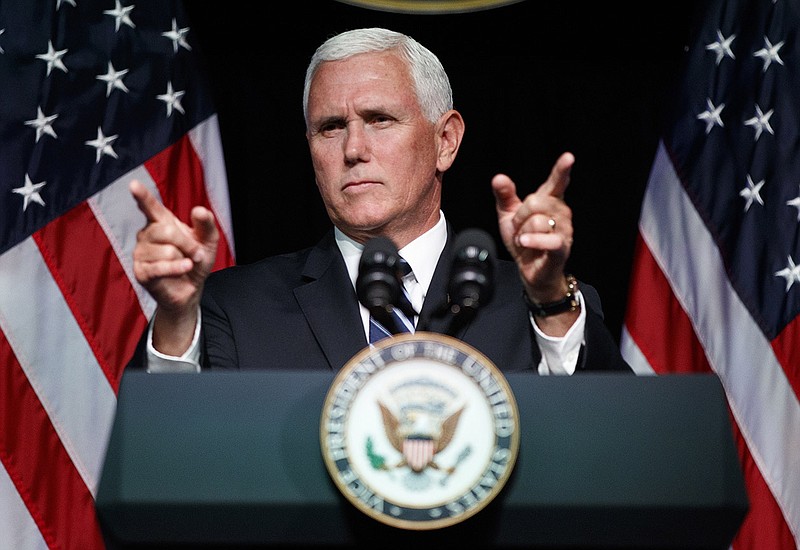The Trump administration announced earlier this month it wanted to establish a United States Space Force, a separate and distinct branch of the armed forces.
That the left quickly panned the idea doesn't bother us. Today's Democratic Party stands for one thing and one thing only - stopping President Trump. It wouldn't matter if the administration had a cure for cancer, a solution to poverty or planned to give everyone a pollution-free flying vehicle. Democrats would say the cure for cancer had potential side effects, poverty was noble in some cases, and flying vehicles discriminated against those who did not wish to fly.
We aren't in a position to know whether a Space Force is needed, would be redundant or would be ridiculously expensive. But we do know that we aren't the only country with a significant presence in space anymore - haven't been for a while - and that Russia and China, if not more countries, would like to dominate space, what the title sequence to the original "Star Trek" television show termed "the final frontier."
The administration's first two space directives called for returning a man to the moon and called for regulations for launch and re-entry sequences that would encourage more commercial spaceflight operations. Its third called for U.S. industry to implement a state-of-the-art framework for space traffic management. The work would include monitoring objects in orbit and sharing the information so spacecraft can avoid collisions - something a Space Force could handle.
In June remarks, Trump said "when it comes to defending America, it is not enough to merely have an American presence in space. We must have American dominance in space."
President John F. Kennedy in 1961 challenged the nation to dream big about space exploration, about going to the moon, and in public and in private tied the desire to do so to national defense.
"[W]e have examined where we are strong and where we are not," he said in a speech to Congress, "where we may succeed and where we may not. Now it is time to take longer strides - time for a great new American enterprise - time for this nation to take a clearly leading role in space achievement, which in many ways may hold the key to our future on earth."
Following Kennedy's call, science, math and technology became more important in schools, children said they wanted to be astronauts, and Americans felt a source of pride in the country eventually winning the space race against a communist empire that, 20 years later, lay in ruins.
The president, at the time, not only called for a significant monetary expenditure from Congress to achieve his goal but also told the country that "all of us must work to put" a man on the moon and that "every citizen of this country should consider the matter carefully [because the country must be] prepared to do the work and bear the burdens to make it successful."
The technology already exists to put people on the moon and bring them home safely, and commercial spaceflight already is a burgeoning reality. But space is ever more frequently populated with satellites that link internet communications, and the military is increasingly reliant on satellites for navigation, reconnaissance and communications. Meanwhile, Russia and China are undoubtedly developing weapons systems that would jam or halt those communications.
When Vice President Mike Pence made a speech last week touting a Space Force, pundits and late-night comedians treated his words as if he'd announced the 1996 live-action/animated sports comedy film "Space Jam" was going to be recreated.
For those who have forgotten, or never knew, the movie's scenario had recently retired National Basketball Association star Michael Jordan and his Looney Tunes cartoon character friends play a basketball game against a group of aliens who want to enslave them for their amusement park.
Jordan and Bugs Bunny won't be much help against the Russians and Chinese, though.
In time, a potential Space Force might provide conflict arbitration, defense and rescue services. And already existing space launch vehicles or rockets could become weaponized, if necessary, under the auspices of such a military branch.
Whether such operations should happen under one Space Force or remain as they are today under the various military branches is a question that should be examined. What uniforms they should wear, whether an assistant secretary of defense position for space should be established, even whether Space Force should be the final name (brings to mind bad 1970s TV) are secondary in nature.
After all, it's not as if the United States - on the order of a Trump tweet and a Pence speech - is being asked to ramp up to create space navigable vehicles and weapons systems from scratch. They're already out there. The question is whether they can be better coordinated and more humanely used for a peaceful space in the future. If they can, it's an idea that Republicans and Democrats alike ought to consider.
